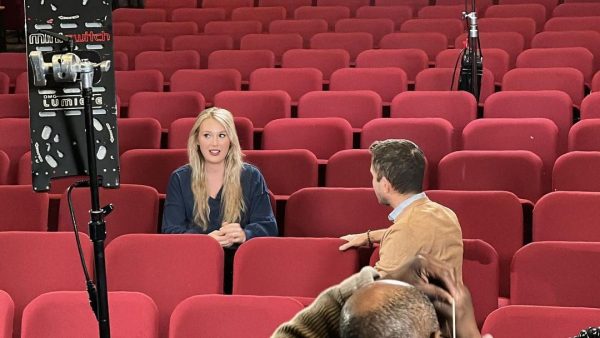AHS family support group
The AHS Family Support Group is an organization that meets with parents who have students with disabilities and provides them with emotional support and information.
The Family Support Group was created two years ago by Mrs. Binsley and Dr. Anne Brosnan, the school’s physician.
“The idea was to offer parents of students with disabilities an opportunity to get together and talk about their experiences and to learn from each other,” Brosnan said. “We thought this would be a great way for parents to offer each other emotional support as well.”
They meet up several times throughout the year at AHS to help make life easier for the parents.
“I don’t visit with the parents, instead they come to school on one Saturday morning each quarter and meet with each other for one and a half hours,” Brosnan said.
Students, teachers, parents, IA’s and Mr. Sweeney, a licensed clinical social worker, come together and volunteer during the meetings to help the families in need.
Having Mr. Sweeney moderate the program is beneficial because the parents haven’t had trouble with confiding in him.
“That is why we asked Mr. Sweeney instead of someone who works for AHS to be the facilitator,” Brosnan said. “That way parents feel comfortable sharing openly and know what they talk about is confidential.”
“While the parents meet, AHS students volunteer to help by providing child care, escorting parents, signing families in and helping to set up,” Brosnan said. “Teenagers who have a sibling with a disability can come with me and talk about their experiences while their parents are with Mr. Sweeney.”
Not only does the group provide support for the family, but they also aid the disabled children as well.
“Bringing up a child with a significant disability has many rewards but can also be very challenging,” Brosnan said. “Our hope is that these families know they are not alone and that others are there for them.”
Although they are the ones helping the parents, the parents themselves play a large role in the success of the program.
“Parents are the best source of information since they are motivated to learn,” Brosnan said. “[They] share information on extracurricular activities, respite care, agencies that work with disabled people, and opportunities for their children after graduation. The best part, though, is that they can talk about their experiences and get strength from each other.”

AHS senior Hezekiel Yonas has been on The A-Blast staff for three years. When he isn't focusing on the responsibilities that come along with being co-editor...







